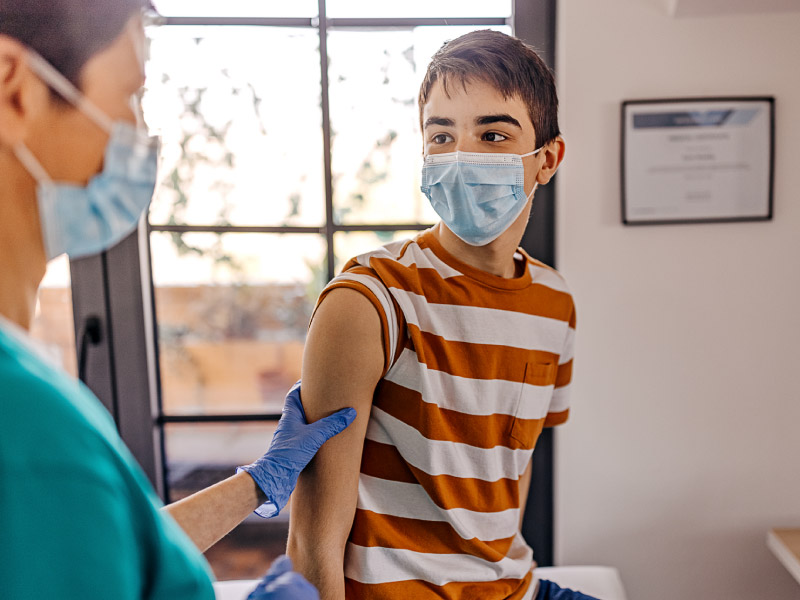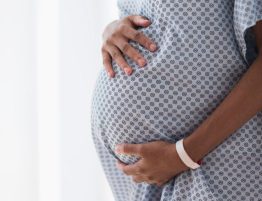
Most adolescents and young adults who developed a rare heart problem after being vaccinated for COVID-19 recovered soon afterward, according to a new study.
Researchers used data from 26 pediatric medical centers across the United States and Canada to examine cases of suspected myocarditis – a swelling of the heart muscle – in people younger than 21.
Of the 139 people evaluated, most were hospitalized for two or three days. Less than a fifth were admitted to intensive care. None died.
“These data suggest that most cases of suspected COVID-19 vaccine-related myocarditis in people younger than 21 are mild and resolve quickly,” the study’s lead author, Dr. Dongngan T. Truong, said in a news release. She is an associate professor of pediatrics in the division of cardiology at the University of Utah in Salt Lake City.
The study was published Monday in the American Heart Association journal Circulation.
Myocarditis is a rare but serious condition that can weaken the heart and affect its electrical system. In June, the Centers for Disease Control and Prevention’s Advisory Committee on Immunization Practices reported a likely link between mRNA COVID-19 vaccinations and myocarditis, particularly in people 39 and younger.
The highest rates have been reported among adolescent and young adult males, said Dr. Jane W. Newburger, associate chair of academic affairs in the department of cardiology at Boston Children’s Hospital. In the past, myocarditis has been associated with some other vaccines, most notably the one for smallpox, said Newburger, senior author of the new study and Commonwealth Professor of Pediatrics at Harvard Medical School.
Patients examined in the new study developed suspected myocarditis within one month of receiving a COVID-19 vaccination. They ranged in age from 12 to 20 years old. Two-thirds were white, and 9 out of 10 were male.
Nearly every case followed an mRNA vaccine, and 91.4% occurred after the second vaccine dose. Symptoms – most frequently chest pain, but occasionally fever and shortness of breath – appeared, on average, two days after the vaccine was administered.
In the patients who received a cardiac MRI, more than three-fourths had evidence of inflammation of or injury to the heart muscle. In nearly 19%, a measure of the heart’s squeezing power called left ventricular function, was initially affected, but heart function returned to normal in all who came back for follow-up. No patients needed mechanical support for circulation.
Truong, who is also a pediatric cardiologist at Intermountain Primary Children’s Hospital, said more studies hopefully will help to better understand how this rare complication develops and its risk factors.
The study design did not allow scientists to estimate how often people who received a vaccine developed myocarditis. Experts have repeatedly said the risk of harm from catching COVID-19 is much higher than the risk from a vaccine.
“Overwhelmingly, data continue to indicate that the benefits of COVID-19 vaccination – 91% effective at preventing complications of severe COVID-19 infection including hospitalization and death – far exceed the very rare risks of adverse events, including myocarditis,” said Dr. Donald Lloyd-Jones, a cardiologist, epidemiologist and chair of preventive medicine at Northwestern University Feinberg School of Medicine in Chicago. He was not involved in the study.
“This study supports what we have been seeing – people identified and treated early and appropriately for COVID-19 vaccine-related myocarditis typically experience mild cases and short recovery times,” Lloyd-Jones said in the release. He also is president of the AHA.
Researchers said health care professionals should be aware of the possibility of myocarditis in patients who report chest pain after they have received a COVID-19 vaccine, especially in boys and young men in the first week after the second vaccination.
Truong said studies are planned to determine long-term outcomes for people who had myocarditis after COVID-19 vaccination.
“It is important for health care professionals and the public to have information about early signs, symptoms and the time course of recovery of myocarditis, particularly as these vaccines become more widely available to children,” she said.
Editor’s note: Because of the rapidly evolving events surrounding the coronavirus, the facts and advice presented in this story may have changed since publication. Visit Heart.org for the latest coverage, and check with the Centers for Disease Control and Prevention and local health officials for the most recent guidance.
If you have questions or comments about this story, please email editor@heart.org.







